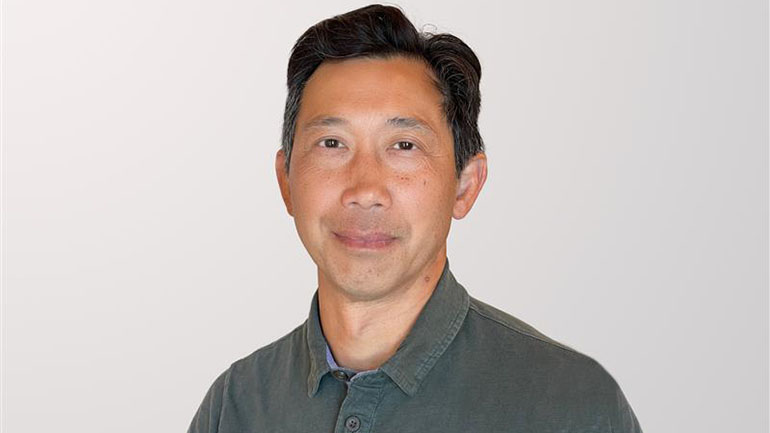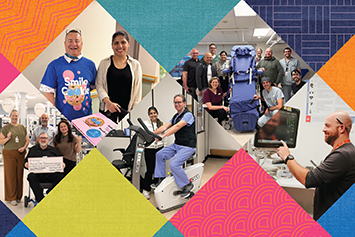
At Peace Arch Hospital, patients undergoing joint replacement surgery are getting extra support, so they feel stronger, recover faster and return to daily life with more confidence.
Photo: Dr. Marshall Cheng, anesthesiologist and project lead, Surgical Patient Optimization Collaborative
Surgery can feel overwhelming, but preparing for it can make a big difference in how well patients recover. At Peace Arch Hospital, the Surgical Patient Optimization Collaborative project helped patients take small but important steps to improve their health before joint replacement surgery.
From January 2022 to July 2023, the Surgical Patient Optimization Collaborative team undertook a project called Surgical Patient Optimization Collaborative: A Community Hospital Quality Improvement Perspective to improve care for patients undergoing joint replacement surgery by helping them become healthier beforehand. The goal was straightforward: to help patients feel their best going into surgery, so they heal better afterward.
Patients were offered extra support in four key areas: quitting or cutting down smoking to improve breathing and healing; treating low iron levels so patients had more energy and strength; screening for sleep apnea and starting treatment to support healthy sleep; and connections to community supports to reduce stress and help with recovery at home.
For many of the patients, the focus on these areas paid off. In just 18 months, 82.6 per cent of smokers reduced or quit smoking, 72.7 per cent of patients with low iron improved their hemoglobin levels and 63 per cent of high-risk sleep apnea patients began using a CPAP machine.
Patients also said they felt better cared for and more prepared for surgery. Seven out of ten even reported that the support improved their overall health, not just their surgical recovery.
Post-surgery, the team saw clinically significant improvements. Surgical site infections declined from 3.1 per cent to 1.1 per cent, readmissions dropped from 4.2 per cent to 2.2 per cent and the average hospital stay shortened from 3.2 days to 2.9 days.
“These results show that preparation before surgery really works,” said Dr. Marshall Cheng, anesthesiologist and project lead. “Patients do better and feel better when they are supported early.”
Behind the scenes, the Surgery Pre-Admission Clinic team played a huge role in helping patients through the program, building the areas of focus into everyday care.
“This project would not have been possible without the Surgery Pre-Admission Clinic team,” Dr. Cheng added.
Since the project, Peace Arch Hospital has continued using these processes for joint replacement surgeries and is exploring how they can be adapted for other procedures at the site so more patients can benefit.
To build on this progress across Fraser Health, the Surgical Patient Optimization Collaborative team is also working with the provincial Perioperative Clinical Action Network to expand the program to other sites in the future. As part of this effort, Dr. Susan Lee, anesthesiologist at Royal Columbian Hospital and Eagle Ridge Hospital, is leading the development of a digital questionnaire that will help identify patients who need extra support earlier in their surgical journey, leading to better outcomes for patients and more efficient care for providers.
“The most important thing is that patients feel supported, healthier and more confident heading into surgery,” said Angela Tecson, director, Surgical Safety and Physician Partnerships, Fraser Health. “That’s what makes recovery safer and smoother.”


